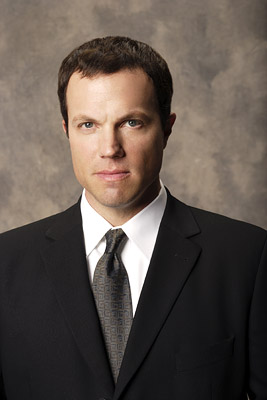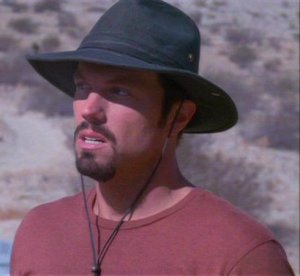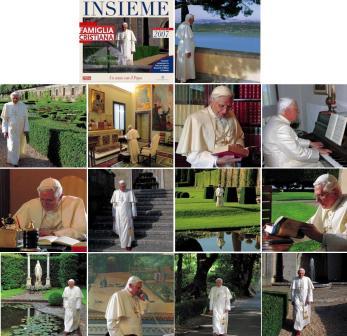by Raymond A. Schroth, S.J.
Here's the list of books suggested by the author. Books with red titles are not gonna be read by this reader. In some cases I need suggestions, in other cases I have substitutes all lines up.
The Book of Genesis: I did a Bible study of this that was a real eye opener. I never knew there was so much depth to Genesis. What a great book!- The Book of Job: *sigh* ok but I am dreading it. The sadness, the complaining, the moaning ... I'm only going through with reading this one because it's in the Bible. Otherwise, it would be off this list so fast!
- The David Story: A Translation with Commentary of 1 and 2 Samuel by Robert Alter: ok, why not?
The Gospel of Luke: studied this several times.The Gospel of John: studied this several times.- The Confession by St. Augustine: I have taken three runs at this and always gotten bogged down by the self-pitying chapters about being beaten by tutors and other various problems of growing up. However, I see that Librivox has this coming out soon. That might be the help I need to push me over that hump.
- Inferno by Dante Alighieri: can't wait!
- Butler's Lives of the Saints by Michael Walsh: can't wait!
- The Imitation of Christ by Thomas a Kempis: several versions of this are available on mp3, one is at Maria Lectrix. No problemo.
- The Idea of a University by Ven. John Henry Newman ... at the risk of sounding like Homer Simpson, "Booooring!" C'mon with ideas if you've got some ...
- Walden by Henry David Thoreau: *sigh* ok, but I'm not looking forward to it
- The Second Inaugural Address by Abraham Lincoln: Lincoln's my hero; can't wait!
- The Brothers Karamazov by Fyodor Dostoyevsky: a classic I've been meaning to read for a long time; can't wait!
The Story of a Soul by St. Therese of Lisieux: it didn't grab me but, again, everyone can't love every single saint- Mont-Saint-Michel and Chartres by Henry Adams: can't wait!
- Orthodoxy by G.K. Chesterton: another one that I've tried to read several times. Chesterton is just too smart for me. However, I think that Librivox is working on this one also so listening to it may be the easier route.
- Dubliners by James Joyce: I don't like the whole idea of reading James Joyce but ... what the heck. Ok James, surprise me!
- Kristin Lavransdatter by Sigrid Undset: never heard of it before now so why not.
- Therese by Francois Mauriac: Based on Steven Riddle's comments, I will go with Tangle of Vipers by the same author instead of Therese.
- Death Comes for the Archbishop: this book has been recommended to me many times by people I trust; can't wait!
Mr. Blue by Myles Connolly: my review is here- Out of My Life and Thought: An Autobiography by Albert Schweitzer: can't wait!
- The Diary of a Country Priest by Georges Bernanos: can't wait!
- The Power and the Glory by Graham Greene: an alcoholic priest in Mexico; gee there's so much to love about this story. No wonder I've avoided it like the plague all these years. Look's like it's time to pay the piper; I'll give it a shot
- Black Lamb and Grey Falcon: A Journey through Yugoslavia by Rebecca West: never heard of it before now so why not
- Brideshead Revisisted by Evelyn Waugh: aaargh! I'll finally be forced to read this book. All I can say is I hope it isn't another Helena (which I detested and yes I know it's a classic, etc.).
- Cry, the Beloved Country by Alex Paton: never heard of it before now; sounds interesting so ok
- The Seven Storey Mountain by Thomas Merton: Tried twice, hated it. Yes, you heard me. Hated it. However, I will substitute No Man is an Island by Merton which I think I might like better.
- Letters and Papers from Prison by Dietrich Bonhoeffer: no strong feelings one way or the other so why not.
- The Long Loneliness by Dorothy Day: can't wait!
- The Family of Man by Edward Steichen: photographs, interesting idea. Why not?
- Divine Milieu by Pierre Teilhard de Chardin, S.J.: can't wait!
- A Canticle for Leibowitz by Walter M. Miller Jr.: a sci-fi classic that I can't remember if I've ever read ... can't wait!
- Morte D'Urban by J. F. Powers: never heard of it before now so why not
- The Other America by Michael Harrington: the poor in America ... I've only read about this issue until I'm practically blind. I don't think so. I'm open to suggestions for substitutions, preferably fiction.
- The Four Loves by C.S. Lewis: LOVE C.S. Lewis; can't wait!
- The Historic Reality of Christian Culture: A Way to the Renewal of Human Life by Christopher Dawson: no strong feelings one way or the other so why not.
- The Edge of Sadness by Edwin O'Connor: sure, why not.
- Letter from Birmingham Jail by Martin Luther King, Jr.: I've got nothing against King but I just don't care after reading the description. Suggestions? Preferably fiction.
- Everything That Rises Must Converge, "Revelation" by Flannery O'Connor: dreading it, afraid of O'Connor, but also looking forward to what I might learn ... in a weird way.
- The Autobiography of Malcolm X by Alex Haley: I'm kind of interested in Malcolm X after listening to Rose talk about him when studying him in American history.
- Silence by Shusaku Endo:
no way. If only Schroth hadn't said it was the most depressing book he'd ever read. I don't think so. I'm open to suggestions for substitutions, preferably fiction.This is how much I trust Steven Riddle. I will give it a shot based on his comments and strong recommendation. - A Theology of Liberation: History, Politics, and Salvation by Gustavo Gutierrez: just as I am profoundly disinterested in movements like Opus Dei because I ... well, I just don't care ... I feel the same way about liberation theology. Suggestions for substitutes?
- The Fate of the Earth by Jonathan Schell: right, because I've never read anything about how we might blow up the earth before now. I don't think so. I'm open to suggestions for substitutions, preferably fiction.
- The Love of Jesus and the Love of Neighbor by Karl Rahner, S.J.: ok, why not.
- In Memory of Her: A Feminist Tehological Reconstruction of Chrsitian Origins by Elisabeth Schussler Fiorenza: the title alone gives me the creeps, much less after reading the description - I don't think so. I'm open to suggestions for substitutions, preferably fiction.
- Black Robe by Brian Moore:
if Schroth wanted me to read this he shouldn't have mentioned the extensive mutilation and torture spread throughout the book. No thanks. Substitution ideas, preferably fiction?Again, this is how much I trust Steven Riddle. He says it ain't so bad ... so I'll give it a try. - Dead Man Walking: An Eyewitness Account of the Death Penalty in the United States by Helen Prejean: oddly enough, probably because of my own internal struggle with this issue, I'm rather interested to see what this book is like.
- The Life of Thomas More by Peter Ackroyd: Peter Ackroyd's a great author; can't wait!
All Saints: Daily Reflections on Saints, Prophets, and Witnesses for Our Time by Robert Ellsberg: one of the first books I bought after becoming Catholic. It took me a while to notice that the saints Ellsberg includes aren't all canonized or even Christian but it's a good book anyway.
- The First Jesuits by John W. O'Malley, S.J. ... this one's been on my "to read" list for a while
- History of Christianity by Paul Johnson ... this one's been on my bookshelf for a year; this is just the thing I need to make me pick it up and read it.

















